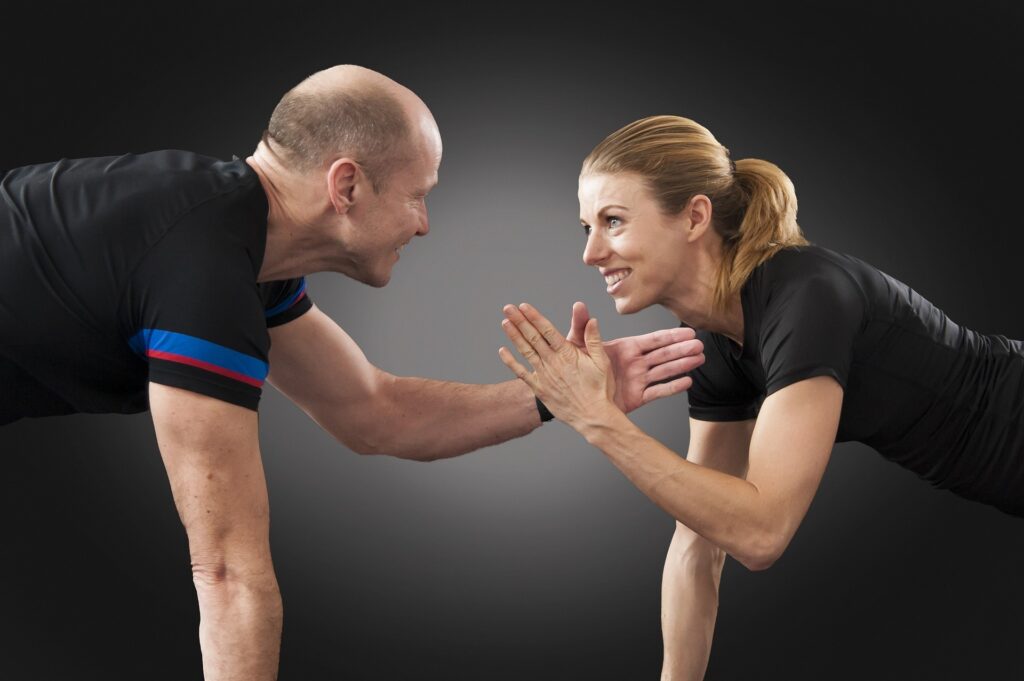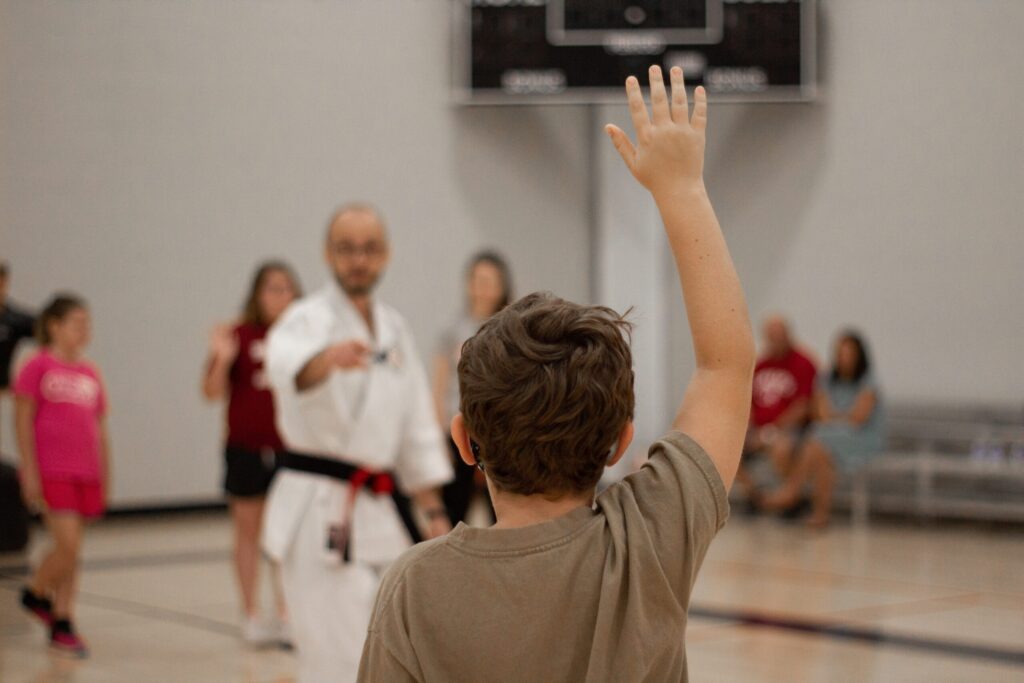Revisiting the Harm of Unsolicited Help

Recently, many female-identified practitioners in my life have been bravely and gracefully sharing with me their challenges in being students in martial arts. One of the main things that comes up time and time again is how difficult it is to be a student when their partners, typically male, seem eager to constantly offer them unsolicited help. That inspired me to revisit this topic I first wrote about in 2016. It is definitely much broader than one of gender, but I think it is particularly pertinent right now.
What is Unsolicited Help?
Simply put, it is any help that we offer where there has not been an explicit request for it. Some examples include:
- When you’re acting as a drill partner and you give a correction on your partner’s form or technique.
- When you perceive someone incorrectly following a lesson, you give them a correction or re-demonstration.
- During or after sparring, when you tell your partner what you believe they’re doing wrong or how they could improve, when that’s not requested.
I know this can be a sensitive topic. I think most of us are coming from a good place with a sincere desire to help those around us learn an art that we are passionate about. Yet giving help when it is unasked for is rarely productive and is often counter-productive.
Some Other Reasons We Give Unsolicited Help
I have found that some students who are offering help are not actually coming from a place of helpfulness but from a place of insecurity. I am familiar with this place because, for the longest time, I was a star at giving unsolicited feedback while I struggled with my own sense of worth and my own demons of perfection. It’s worth taking an honest and gentle look at your own motivations. Are you offering help from a sincere desire to positively influence change or is it coming from a desire to distract from your own fears of imperfection, to bolster your own sense of worth, or to reinforce your place in the hierarchy?
This is something that it took me a while to wrap my head around originally. I hope that many of you can receive this feedback with grace and thoughtfulness and that it leads to interesting discussion and a review of how you encourage those around you.
The Problems with Unsolicited Help
It’s disempowering. Much of learning happens in absence of a teacher. Thus, to truly excel you must become adept and empowered in the learning process. You need to get good at asking for help, managing your own learning, setting priorities, and gaining self-awareness. If your training partners are always hopping in, it takes away your capacity to direct your own training and develop this vital part of long-term learning.
It’s annoying or demoralizing. There are always a hundred things to fix in one’s technique. To get better you can really only focus on one or two at a time. While you’re working on knee alignment, having a partner correcting your hand position, hip alignment, and precision is at best an annoying distraction and at worst an onslaught of negative information. It takes focus to actually affect change—don’t become the noise that gets in its way.
It’s frequently off the mark. Five coaches are not five times better than one. Until you have developed experience, and a sense of empowerment, dealing with instruction from multiple directions can be difficult to manage effectively. New students generally lack the tools to parse what is good information from what is bad or the ability to self-prioritize and focus. How do you know that the advice you offer is really where they’re ready to work or able to work? Let’s reduce the distraction for our training partners by letting them receive feedback from their teacher. The best thing we can do is endeavour to be the best exercise partner we can be.
It’s often the wrong time. When someone asks you for help, you know that they’re ready and interested to receive it. When we give unsolicited help, there’s a good chance that we’re hitting the receiver at a moment when they’re not ready or willing to process it. They may be nodding and agreeing while desperately trying to hold on to their focus, putting on an air of politeness for you, or restraining their desire to slap you. All this means that you are wasting your breath and everyone’s time.
How Can I Help?
This is not an article about not giving help, it’s simply about being effective and constructive with the help you offer. If you truly want to help those around you grow, which I’m sure you do, find ways to do it that genuinely create the outcome you want.
Be an excellent training partner. One of the simplest things you can do to help your partner learn is to do your side of the exercises as best you can. Be a consistent and generous training partner. Don’t compete or direct. Allow them the opportunity to discover and learn from the feedback you can offer within the structure of the drill itself. If you’re unsure how to be a great partner, ask your teacher, mentor, or partner for help in doing so.
Model the behaviour you want in your peers. If you think your partner should be getting more help, then make sure you’re modelling good help-seeking behaviour. Remove hierarchy from your training. Make learning and ideas the focus. Your partner may learn and grow more by being your helper than they ever would through the help you offer them.
Wait to be solicited. When I’m in the role of teacher there is an implicit request for help that comes from my students when they join my class. This is not the case when you are a peer in that class. Even when I am in the teacher role I endeavour to get my students into a habit of looking after their own needs. The greater a role they can play in directing me as a tool for their benefit, the more effective my help is when I give it.
If you feel that you have something to offer your training partner, sit tight and wait. If you feel that perhaps they want your help but are not yet empowered to ask for it, invite them first: “I might have a pointer for you, would you like it?” Be aware though that even when you start this way, many people will agree simply out of politeness or because they feel it’s what they’re “supposed to do”. So turn your emotional perception up to max and make sure you’re truly offering something that is desired.
Talk about learning and empowerment. There is a bigger conversation about empowerment and learning to be had with your training partners. How do your peers, your group’s teachers, and facilitators want to give and receive help? The meta-conversation about learning is often as important as the technical learning itself. Make sure that everyone in your group knows that they are the centre of their own learning process and should be the active director of it and not a passive recipient.
Be Patient
It takes time to develop proficiency in the same way that it takes time to re-evaluate how you or your group provide support and coaching to one another. Be as compassionate with yourself as you are with those around you. Learning is a vulnerable process and necessarily uncomfortable. Spend time getting comfortable with your discomfort, and allow your training partners the opportunity to do the same.




Responses